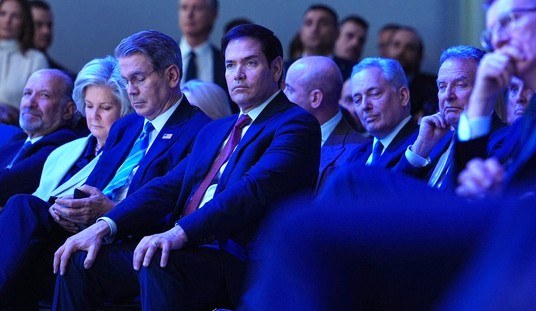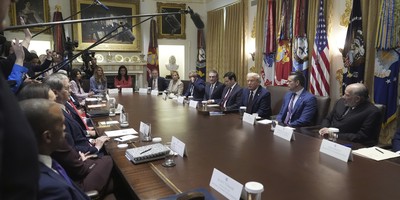By: Frank Cannon and Paul Dupont
David Brooks is a talented writer. His columns at The New York Times, where he has assembled an impressive body of work over the years, never fail to encourage his readers to think more deeply about the many topics he covers. However, Brooks also has his blind spots, the most important of which was readily apparent in his May 28th piece titled, “The Strange Failure of the Educated Elite.”
Brooks, like many elite intellectuals, has struggled to understand why, precisely, Donald Trump won in 2016 and what his victory means for the country. He does recognize, correctly, that Trump’s election represents a popular rejection of our nation’s elites, and in his piece, he even argues that this rejection is justified. But where Brooks falls short is in his attempt to explain the failure of America’s elites and what is necessary for their recovery.
In his column, Brooks attributes the elites’ failure to the failure of the “meritocracy” of the post-World War II era. He argues that several beliefs built into that system -- an exaggerated faith in intelligence, misplaced faith in autonomy, misplaced notion of the self, inability to think institutionally, and misplaced idolization of diversity -- have led our country’s meritocrats to become isolated from the rest of the society they lead, creating a disconnect which is now reaching its breaking point.
These are all very astute observations. However, in ending his analysis, Brooks betrays a fundamental lack of understanding when it comes to the existential problem America is facing with its elites. That problem can be summed up as follows.
In previous generations, America’s elites shared with the rest of its citizenry a common worldview, one animated by the Judeo-Christian values first articulated in America’s founding documents. More recently, Ronald Reagan summed up those values in his famous five words: Family, Work, Neighborhood, Peace, and Freedom. Although the elites of our nation’s past may have inhabited a separate socioeconomic sphere than most other Americans, they still at least accepted the same basic vision of the social good as their fellow citizens.
Recommended
Today, that is no longer the case. In recent decades, the “meritocratic” elite has cast aside their former Judeo-Christian framework and instead adopted a pseudo-religious progressivism, a relentlessly zealous ideology which seeks to subdue or punish all who oppose its aims. The widespread acceptance of the ideology by American elites has put them squarely at odds with the rest of the country, much of which still holds to the values of America’s founding.
This gap has manifested itself in beliefs rather than practices. While scholars such as Charles Murray have pointed out that the elite class typically has a higher rate of religious observance than other Americans, other research suggests this is despite, rather than because of, their beliefs. A recent Pew survey, for example, indicates a large gap in religious belief between the more liberal-leaning college educated and the more traditional non-college educated, even though the former are more likely to be observant.
It is this gap in belief which has become the root cause for so many of America’s cultural ills. All of the worrying symptoms of a nation in turmoil that Brooks describes -- rising inequality, faith in institutions disappearing, social trust declining, dysfunctional government, and society bitterly divided over any number of issues -- stem from our elites’ embrace of an increasingly authoritarian progressivism. Furthermore, all of the beliefs Brooks identifies as faulty within America’s meritocracy -- a misplaced faith in autonomy, a misplaced idolization of diversity, etc. -- are central tenets of that same progressivism, though most progressives would deny these are “misplaced”.
This also explains why Brooks’ solution to “fix” America’s meritocracy is ultimately unworkable. While Brooks rightly argues that our elites must regain a “a civic consciousness, a sense that we live life embedded in community and nation, that we owe a debt to community and nation and that the essence of the admirable life is community before self,” he fails to comprehend that such a mindset goes against the very essence of progressivism and, furthermore, that those who hold to a more traditional, Judeo-Christian worldview which extols the values of community are, by virtue of their opposition to progressivism, barred by and large from holding any position of prominence within elite circles.
The majority of American voters, at least in the states that mattered, understood this instinctually in 2016. Repulsed, and even frightened, by the ideological intransigence of the elite, they responded by voting into the White House a brash, urbanite playboy, albeit one who campaigned on a platform of anti-elitism. For them, four years of Donald Trump was much more palatable than allowing progressives another term in which to increase their authoritarian grip on our nation’s institutions.
And these voters’ concerns have only been validated since Trump’s victory, as our elites have progressively strayed from their “meritocratic” pretenses. In recent months, they have become more transparent in their attempt to turn America’s institutions into a leftist cabal, denying “merit” to anyone who dares to disagree with progressive ideology. Expanding beyond Hollywood and academia, where they have dominated for years, progressives are now seeking to shut down all dissent in the public square. Consider the case of Judge Amy Barrett, who was attacked by Senator Dianne Feinstein for her faith on the Senate floor -- “the dogma lives loudly within you.” Or Mike Pompeo, who was pressed by Senator Cory Booker to affirm the goodness of anal sex.
Although David Brooks correctly grasps that something has gone badly astray among America’s elites, he unfortunately misses the big picture. Indeed, a “new ethos” is certainly needed, but it is one far more fundamental than what he suggests. Unless we reject the poison that is progressivism and recover our Judeo-Christian roots, America will never be able to achieve a meritocracy that is “truly open to all.” And that would be a tragedy.
Frank Cannon is the president at American Principles Project. Follow him on Twitter @FrankCannonAPP.
Paul Dupont is a senior policy analyst at American Principles Project.

























Join the conversation as a VIP Member